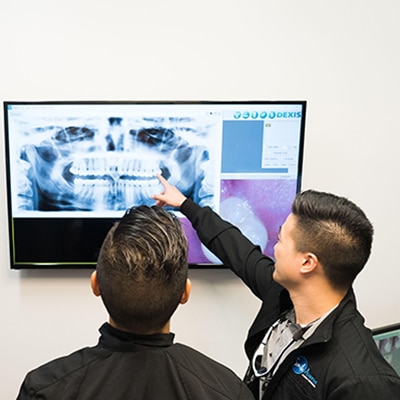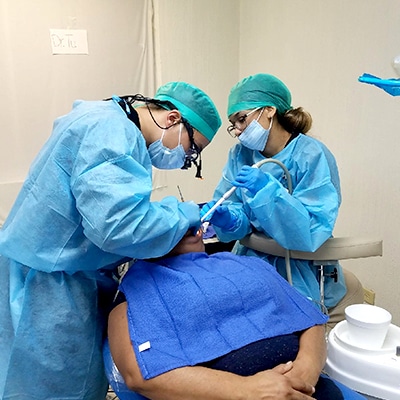
Cavities and tooth decay are among the most common health issues around the world. They are particularly prevalent among children, teenagers, and older adults. Cavities can affect anyone, regardless of age, including babies who have teeth.
Untreated cavities will continue to grow and affect the inner layers of your teeth. To safeguard against cavities, it’s crucial to schedule regular appointments with Katy’s dentist Dr. Patrick Vuong, and follow proper brushing and flossing routines.
What Are Cavities?
Although cavities are typically more prevalent in children, it is important to note that adults are also susceptible to them. There are various types of cavities, which include:
- Coronal cavities are the most common type of cavities found in both children and adults. They are typically located on the chewing surfaces of teeth or in the spaces between them.
- As we get older, our gums tend to recede, which can result in the exposure of certain parts of the tooth root, leading to root cavities. Tooth roots, which lack enamel coverage, are prone to decay due to their exposed nature.
- Recurrent decay is the formation of decay around existing fillings and crowns. This is because these areas tend to accumulate plaque, which can ultimately result in tooth decay.
Adults who experience dry mouth, a condition caused by insufficient saliva production, are particularly susceptible to cavities.
Dry mouth can be caused by various factors such as illness, medications, radiation therapy, and chemotherapy. The duration of dry mouth can vary, from temporary (lasting for days to months) to permanent, depending on the underlying cause.
It’s important to treat cavities promptly to avoid serious consequences. Ignoring cavities can lead to significant tooth damage and possible nerve death. This can cause an abscess to form, and an infection at the tip of the root. Treatment options like root canal therapy, surgery, or tooth extraction may be needed if an abscess occurs. For good dental health, visit a reliable dentist in Katy, Dr. Patrick Vuong.
What Are The Symptoms Of Cavities?
Cavity symptoms can range from mild discomfort to severe pain, depending on the severity and location of the tooth decay. It is possible to experience no symptoms at all while a cavity is in its early stages. Signs and symptoms like these could appear as the degradation progresses:
- Discomforts such as toothaches and others.
- Tooth discomfort.
- Any sweet, hot, or cold food or drink might cause mild to severe pain.
- Visible pits or holes in your teeth.
- Any kind of tooth discoloration, including brown, black, or white spots.
- Tingling sensation when biting down.
How To Prevent Cavities?
- Daily flossing and brushing are required to remove plaque from between the teeth and below the gumline.
- Attend routine dental examinations. Preventive care can aid in averting problems and preventing minor issues from escalating into significant concerns.
- Consume a balanced diet with restricted starchy and sugary foods. Try to incorporate these foods into your meals rather than snacking on them to reduce the frequency with which your teeth are exposed to acid.
- Use fluoride-containing dental products.
- Ensure that the potable water your children consume is fluoridated. You may be prescribed daily fluoride supplements by your dentist or pediatrician if fluoride is absent from your water supply.
It’s important to know that a cavity might be forming without your knowledge. Prioritizing regular dental checkups and cleanings is crucial, even if your mouth seems healthy. If you have a toothache or any mouth pain, it’s important to make an appointment with Dr. Patrick Vuong, a dentist in Katy, as soon as possible.









